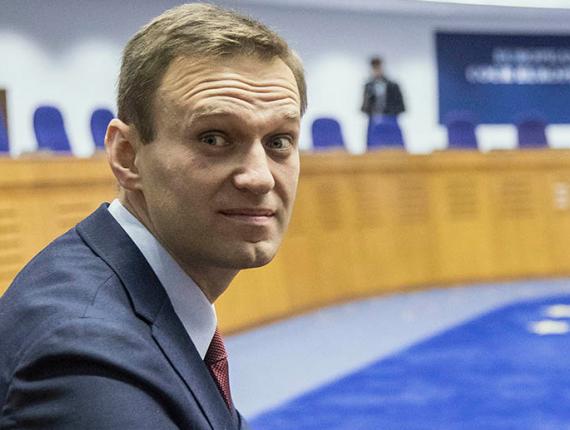The criminal case against Aleksei Navalny and his associates for organizing an ‘extremist group’ is politically motivated
We believe the designation of the Anti-Corruption Foundation and other structures run by Navalny as extremist to be unlawful. The organizations did not violate Russian law
Memorial Human Rights Centre, in accordance with international criteria, considers Aleksei Navalny and Pavel Zelensky to be political prisoners; and Georgy Alburov, Leonid Volkov, Vyacheslav Gimadi, Ivan Zhdanov, Rustem Muliukov, Liubov Sobol and Ruslan Shaveddinov to be victims of wrongful politically motivated prosecution. We consider their prosecution to be part of a repressive campaign aimed at the complete eradication of the extra-parliamentary opposition in Russia.
We demand the immediate release of Aleksei Navalny and Pavel Zelensky from custody and the prosecution of those responsible for their unlawful prosecution, as well as the dropping of all criminal charges against other defendants forced to leave Russia.
- What are the charges against Aleksei Navalny this time?
On 28 September 2021 it became known that one more criminal case, the thirteenth already, had been opened against the Russian opposition leader Aleksei Navalny. Also charged with him for the offence of creating an extremist group (Article 282.1, Part 1, of the Russian Criminal Code) are his associates Leonid Volkov and Ivan Zhdanov. Liubov Sobol, Georgy Alburov, Ruslan Shaveddinov, Vyacheslav Gimadi, Pavel Zelensky and Rustem Muliukov have been charged with participating in an extremist group (Article 282.1, Part 2, of the Russian Criminal Code). It has also been reported that ‘other individuals’ are also under investigation in connection with this case.
According to the information available to Memorial, all the aforementioned members of the opposition, with the exception of Aleksei Navalny and Pavel Zelensky who are currently imprisoned and have been recognized by Memorial as political prisoners, are currently outside the Russian Federation and have been put on a wanted list.
- Why does Memorial consider this criminal case politically motivated and unlawful?
Aleksei Navalny is Russia's leading opposition politician. For many years he has exposed corruption in the highest levels of government and has been a harsh critic of President Vladimir Putin. The chronology of the criminal proceedings against Navalny suggests there is a clear political motive that has guided the investigative authorities from the beginning.
The political nature of the prosecution of Navalny is underscored by the 13 criminal cases that have been brought against him, the constant pressure he, along with members of his family and his supporters, has faced, the systematic violations of the Russian Criminal Code, Criminal Procedural Code and the Russian Constitution that have been a feature of the investigations of his alleged ‘crimes’ and his poisoning by the Novichok nerve agent that has been confirmed by 56 member countries of the Organization for the Prohibition of Chemical Weapons.
There are grounds to believe the new criminal case against Navalny and his associates is linked to the ruling elites’ dissatisfaction with the ‘Smart Voting’ strategy advocated by the extra-parliamentary opposition and the desire to limit the activity of media resources controlled by Navalny's supporters on social networks.
The new criminal cases against the leadership of the Anti-Corruption Foundation, an organization that was first unlawfully recognized as a ‘foreign agent’ and then declared extremist, are being used not only for the purposes of propaganda but also to obstruct the legitimate political and public activities of Navalny and his associates.
The claim that the Anti-Corruption Foundation and Navalny’s other organizations were not created for the stated purpose of carrying out anti-corruption investigations and other forms of public activity but allegedly formed part of some ‘extremist group’ is absurd, no matter what scholastic and casuistic arguments the Russian Investigative Committee may put forward to justify its position. Navalny's network of regional headquarters also acted publicly and transparently.
On 9 June 2021 Moscow City Court declared the Anti-Corruption Foundation, the Foundation for the Protection of Citizens' Rights and the informal civil society movement ‘Navalny Headquarters’ extremist organizations. Memorial condemned this decision, noting that ‘neither the publicly available case materials, nor the actions of these groups themselves, contain anything that would indicate their activities were “extremist” in nature.’ All the more do we consider unlawful the decision to initiate a criminal investigation with regard to the alleged creation of an extremist group of Navalny supporters, taking into account the fact that the activities of the aforementioned organizations have been repeatedly checked by the Ministry of Justice and, according to its reports, were not extremist in nature.
Our assessment is related to the fact that, in criminal cases of this kind, the accused are not charged in connection with specific actions that are dangerous to society per se, but, as a rule, in connection with actions that have been designated as such because they were carried out within the framework of a so-called ‘extremist association.’ All the participants and leaders of an association designated extremist bear collective responsibility for the actions of all participants of the group or organization, even if they themselves did not take part in them in any way. At the same time, a peculiarity of the application of Article 282.1 of the Russian Criminal Code is that the leaders and participants of an ‘extremist group’ learn that it has been so designated, in practice, only at the moment when they are charged with organizing its activity or with membership in it.
A more detailed description of this case and the position of Memorial is available on our website.
Recognition of an individual as a political prisoner, or as a victim of a politically motivated prosecution, does not imply Memorial Human Rights Centre agrees with, or approves of, their views, statements, or actions.
- How to help
Addresses for letters:
- 300012, г. Тула, ул. Мориса Тореза, д. 11а, ФКУ ИК-2 УФСИН России по Тульской области, Зеленскому Павлу Андресовичу 1981 г. р. [Pavel Andresovich Zelensky (born 1981), Penal Colony-2 of the Federal Penitentiary Service of Russia for the Tula region, 11a, Maurice Thorez Street, Tula, 300012].
- 601122, Владимирская область, Петушинский район, г. Покров, ул. Франца Штольверка, д. 6, ФКУ ИК-2 УФСИН России по Владимирской области, Навальному Алексею Анатольевичу 1976 г. р. [Aleksei Anatolievich Navalny (born 1976), Penal Colony-2 of the Federal Penitentiary Service of Russia for the Vladimir region, 6, Franz Stollwerck Street, Pokrov, Petushinsky District, Vladimir region, 601122].
E-mails can also be sent free of charge via the Rosuznik website.
You can support all political prisoners by donating to the Fund to Support Political Prisoners of the Union of Solidarity with Political Prisoners via PayPal, using the e-wallet at helppoliticalprisoners@gmail.com.
Поделиться:
- ВКонтакте
- РћРТвЂВВВВВВВВнокласснРСвЂВВВВВВВВРєРСвЂВВВВВВВВ
- Telegram


